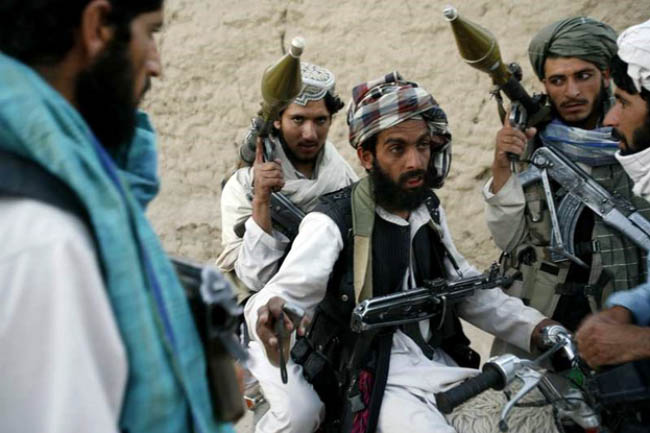Fundamentalism is the product of radical ideology which is mainly promoted in some seminaries (madrassahs) both in Afghanistan and Pakistan. A large number of militant fighters have been trained in underground in seminaries where ideologue figures carry much weight. The Taliban’s uprising originated from seminaries as their founder the late Mullah Muhammad Omar prompted students to fight against Mujahedeen with arms borrowed from locals. Claiming to implement the divine rule in the divine land, they spilled streams of blood, without an iota of mercy, supported by their radical interpretation of religious tenets.
It is believed that if diehard fundamentalists are housed in seminaries, they will be changed into hotbed of horror and terror rather than centers for religious and moral teachings. This issue is highly threatening and must not be downplayed.
Reports say that the organizer of Sar-e-Pul offensive has been captured from Daru-l-Ulum-e Herat (a religious seminary) by Afghan and Italian soldiers. This Daru-l-Ulum is said to be led by Muwlana Jilullah Muwlavi Zada along with his sons. Mulavi Zada was the head of Supreme Court during the Taliban’s regime and worked as the Education Minister during Burhanuddin Rabbani’s administration within the civil unrest. He reportedly had a close relationship with the Taliban’s spiritual leader Mullah Omar and attended their significant meetings. This seminary, which is influenced by the radical schools of thought spreads fundamental mindset.
To show backlash against the capture of the mastermind of Sar-e-Pul offensive, Daru-l-Ulum has issued a fatwa (religious decree) declaring that the military forces invaded their privacy and the sacred place where religious Sunnah is taught. To wash their hands of spreading radicalism, the Daru-l-Ulum’s scholars called it an insult to religious scholars, sacred place, and madrassah and “disgraceful invasion of foreign soldier occupiers and their slaves [Afghan soldiers]” and added that they could find no trace of danger claiming that the capture was taken outside Daru-l-Ulum.
Through issuing this fatwa, they seek two objectives: To undo the marred reputation of Daru-l-Ulum and trigger a sense of public hatred against foreign troops and the government. Their fatwa is replete with radical rhetoric which clearly aims to spark off the religious emotions of the public.
On the other hand, when the Taliban and self-styled Islamic State of Iraq and the Levant (ISIL) spill the blood of innocent people in mosques (the sacred place of all Muslims), kill women and children, and plant bomb inside sacred places, they issue no fatwa against such anti-religious practices, which reflects their double dealing towards an issue.
To further confirm the spread of radical mentalities in seminaries, the nightmare of Lal Masjid (Red Mosque) which is located in Islamabad still haunts Pakistani nation and state when Pakistani government attacked it in July 2007. The armed conflict between Pakistani soldiers and Islamic School Students lasted for eight days. Since January 2006, Lal Masjid and the adjacent Jamia Hafsa madrasah had been operated by Islamic militants led by two brothers, Abdul Aziz and Abdul Rashid. This organization advocated the imposition of Sharia in Pakistan and openly called for the overthrow of the Pakistani government. It was said, “As the Operation Silence unfolded it was discovered that elements from militants groups like Lashkar-e-Taiba, Lashkar-e-Jhangvi, Jaish-e-Mohammad and Harkatul Jihadul Islami were present inside the seminary. Lal Masjid compound was being used as a hide-out by dozens of wanted militants who had Kalashnikov rifles, LMGs, hundreds of hand grenades and petrol bombs and a few rocket-launchers in stock”.
It should be noted that radical figures still seek to continue spreading radicalism in sacred places and seminaries. There are seminaries both in Afghanistan and Pakistan led by religious fundamentalists who spread radicalism under sacred terms and capitalize on religious emotions of naïve individuals.
The two examples: emergence of the Taliban’s spiritual leader from the heart of seminary and armed tension between Pakistani government and Islamic School Students of Lal Masjid unveil the fact that some seminaries have been changed into hotbed of horror and send a strong message of threat. It is believed that if seminaries and the content of their text books are not scrutinized, the cycle of radicalism will not stop through combating terrorism militarily. In brief, the root causes of terrorism must be destroyed so that it be ended in germ.
I have pointed out this threat for several times in many of my commentaries. The bulk of militant fighters are believed to come from seminaries.
Combating terrorism regardless of their hotbeds, root causes and supporting factors will never lead to peace and stability. To win the war on terror, both Afghanistan, along with its political allies, and Pakistan must target the root causes of radicalism and terrorism.
Home » Opinion » The Forgotten Hotbed of Radicalism
The Forgotten Hotbed of Radicalism
| Hujjatullah Zia

